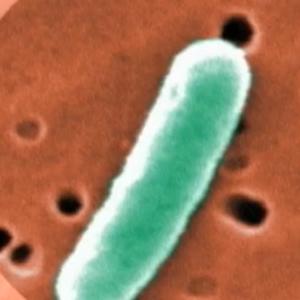
This is the VOA Special English Health Report.
Scientists say they have found dangerous forms of bacteria in the drinking water of New Delhi, India. The bacteria has a gene scientists call New Delhi metallo-beta-lactamase, or NDM-1. The gene is dangerous because it can make bacteria resistant to antibiotic drugs.
Researchers from the University of Cardiff in Britain led the study. They found the NDM-1 bacteria present in two of 50 drinking water samples. They also found it in seepage water – the water that children might play in on streets. The gene was found in 11 bacterial species, including those that cause cholera and dysentery, a diarrheal disease.
The researchers also reported finding NDM-1 in bacteria from medical patients. The patients were from India and other South Asian countries, Europe and North America.
The scientists now estimate that about 100 million Indians with the bacteria are traveling around the world. Timothy Walsh leads the NDM-1 research at University of Cardiff. He says he is concerned about the gene spreading.
TIMOTHY WALSH: "The gene pool in India, Pakistan, probably Bangladesh and even Sri Lanka, is absolutely huge. Wherever these people travel they carry their normal flora with them, 100 trillion bacteria. Therefore the ultimate consequence of this is it can spread worldwide."
The United States government reported the presence of NDM-1 in three people last year. All had been to India earlier for medical treatment.
Experts say people with the NDM-1 form of bacteria in their body can remain healthy. The danger is created if you get bacteria that cause disease. The gene can produce the disease bacteria and make enzymes to fight even the most powerful antibiotics. Antibiotics are the main treatment for bacterial infections.
Officials in India say its water supply is safe. Vishwa Mohan Katoch is the Director General of Health Services. He says the bacteria do not usually cause a problem.
However, officials in New Delhi are investigating. Timothy Walsh says he offered his team to help in the investigation, but Indian officials rejected the invitation. He worries about the science of the study.
TIMOTHY WALSH: "My fear is that this investigation that they are going to undertake will almost certainly not employ the right methods and the study designed will be quite poor and therefore I'm not convinced that the outcome will be scientifically credible."
Professor Walsh also says its time for the international community to force countries to follow World Health Organization guidelines for antibiotic use.
And that's the VOA Special English Health Report, written by Caty Weaver and Vidushi Sinha. I'm Steve Ember.
cholera: a disease caught from infected water that causes severe diarrhoea and vomiting and often causes death 霍亂
dysentery: an infection of the bowels that causes severe diarrhoea with loss of blood 痢疾
Growing global appetite for meat, milk presents health risks
Farmers in East Africa struggle against cassava disease
Reusing pacemakers could improve heart care in developing world
India's Aravind Eye Care System gets Hilton Prize
(來源:VOA 編輯:崔旭燕)
